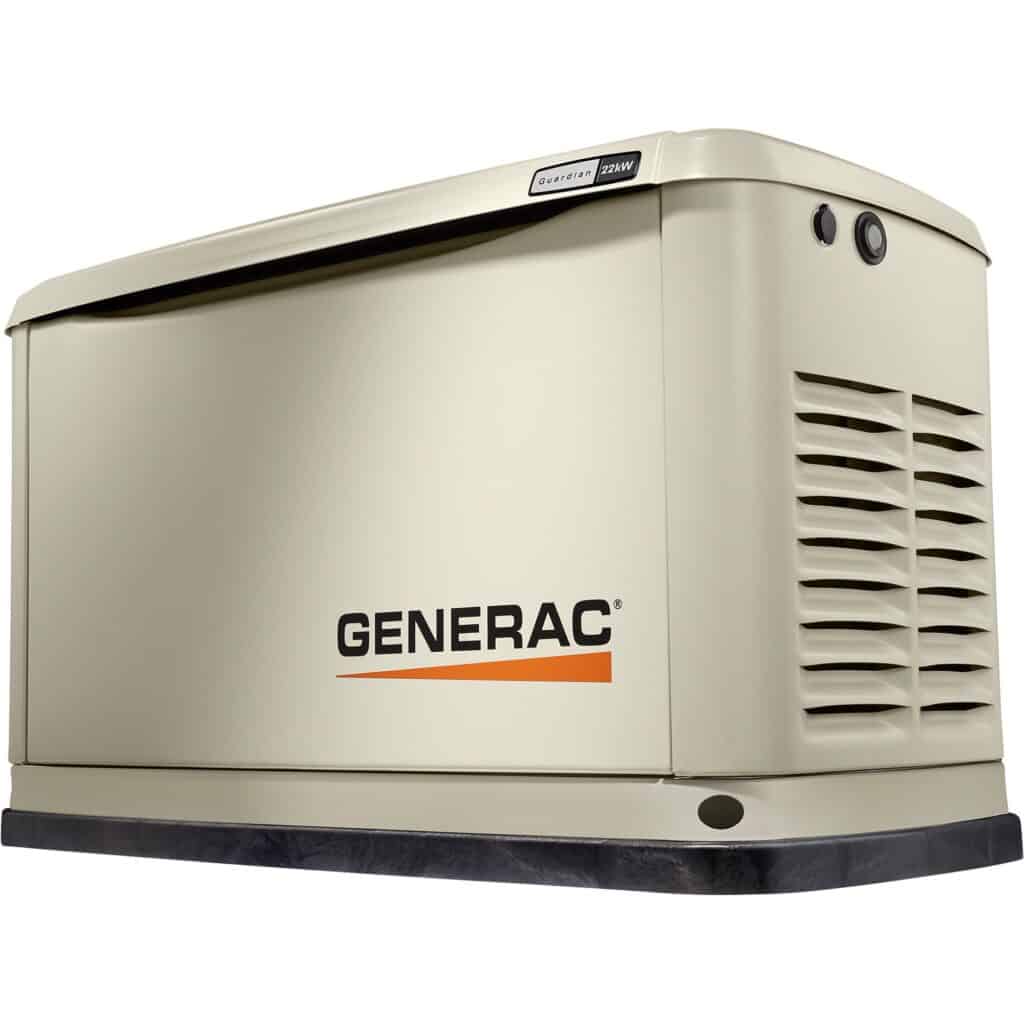What’s the point of having a standby generator if it can’t keep the lights on when you need it most? We’re talking about those moments when a power outage hits and you’re left scrambling.
In this guide, we’ll walk you through the ins and outs of choosing the right size for your standby generator. Because let’s face it, size does matter when it comes to keeping your home powered.
So stick around, and let’s make sure you’re fully equipped for the next blackout.
Why Size Matters in Choosing a Standby Generator
So, you might be wondering, why does size matter when picking a standby generator?
It’s not just about having enough juice to power your smartphone or keep the fridge running. It’s about the whole package-your home’s lights, appliances, and those gadgets you can’t live without.
Efficiency is Key
First off, let’s talk about efficiency. A generator that’s too small will have to work overtime, and that’s not good for anyone. It’ll guzzle up more fuel, and before you know it, you’re making extra trips to the gas station.
On the flip side, a generator that’s too big is like using a sledgehammer to crack a nut. It’ll waste fuel and you’ll end up paying more than you need to.
Longevity Matters
The second big reason is the lifespan of your generator. Imagine running a marathon in flip-flops; you wouldn’t get far, right? The same goes for a small generator trying to power a big house.
It’ll wear out faster, and you’ll be back to square one, shopping for a new generator.
Types of Generators and Their Sizes
When it comes to picking a generator, you’ve got options. And these options come in different shapes and sizes. Let’s break it down.
Portable Generators
Portable generators are the little guys. They’re easy to move around, making them great for camping trips or outdoor events. But when it comes to a power outage at home, they might not cut it.
These generators usually have lower wattage, so they can’t power many appliances at once.
Inverter Generators
Inverter generators are the tech-savvy cousins of portable generators. They’re quieter and more efficient, but they come with a higher price tag.
These are good for people who need backup power but also value efficiency and a lower noise level.
Home Standby Generators
Now we’re talking. Home standby generators are the big kahunas, designed to power your entire home. These are the ones you want for serious home standby generator action.
They’re installed permanently, kick in automatically when the power goes out, and can handle the load of most, if not all, of your household appliances.
How to Calculate Your Power Needs
So you’ve got a sense of the types of generators out there. Great. But how do you figure out how much power you actually need? Let’s get into the nitty-gritty.
Wattage Requirements
The first step is to list all the appliances and gadgets you can’t live without during a power outage. Think refrigerator, lights, heating or cooling system, and so on. Each of these has a wattage requirement, usually listed on the appliance itself or in the manual.
Add up all these numbers, and you’ve got your minimum wattage requirement.
Special Considerations for Appliances
Some appliances, like your fridge or air conditioner, need a power surge to start up but then operate on lower wattage. This is called “starting wattage,” and it’s higher than the “running wattage.”
You’ll need to account for this when calculating your total wattage needs.
Safety Margins
It’s always good to have a buffer. So, once you’ve got your total wattage, add a safety margin of about 20%. This gives you room for error and ensures your generator won’t be running at full capacity all the time, which is good for its longevity.
Buying Tips for a Standby Generator
You’ve crunched the numbers and you know what you need. But before you swipe that credit card, there are some finer details to consider. Trust us, these tips could save you from buyer’s remorse.
Where to Buy
Sure, you can head to your local home improvement store and pick up a generator, but have you considered online options? Online retailers often have a wider selection, and you might stumble upon exclusive deals or models not available in stores.
Plus, customer reviews are right there to guide you. If you’re not a DIY person, consult an electrician for advice. They can even help with the installation later.
What to Look For
Warranty and customer service are your new best friends. A solid warranty can be a lifesaver if your generator acts up. Look for at least a two-year warranty for peace of mind. Customer service is equally important; you want a company that’ll be there when you need them.
Safety features are a must, too. Think automatic shutoffs for low oil levels and overload protection to prevent any electrical mishaps.
Financing Options
Let’s be real, a good generator is an investment. If you’re not ready to part with a large sum of money all at once, check for financing options. Many retailers offer monthly payment plans. Just be cautious and read the fine print.
Interest rates can add up, and you don’t want to end up paying much more than the original price.
Additional Costs
Don’t forget about the extras. We’re talking about things like delivery fees, installation costs, and any necessary electrical work to hook up your new generator. These can add to the overall price, so budget accordingly.
Power Up Your Decision-Making
You are now equipped with the essential knowledge and practical tips to make a well-informed decision. Selecting the appropriate standby generator is not merely a question of power capacity; it also involves considerations of efficiency, durability, and overall reliability.
Proceed with your purchase, secure in the knowledge that you are prepared for any future power outages. The inconvenience of darkness and disrupted routines can now be effectively mitigated.
If you need some help choosing the right standby generator for you, don’t hesitate to get in touch with us.

